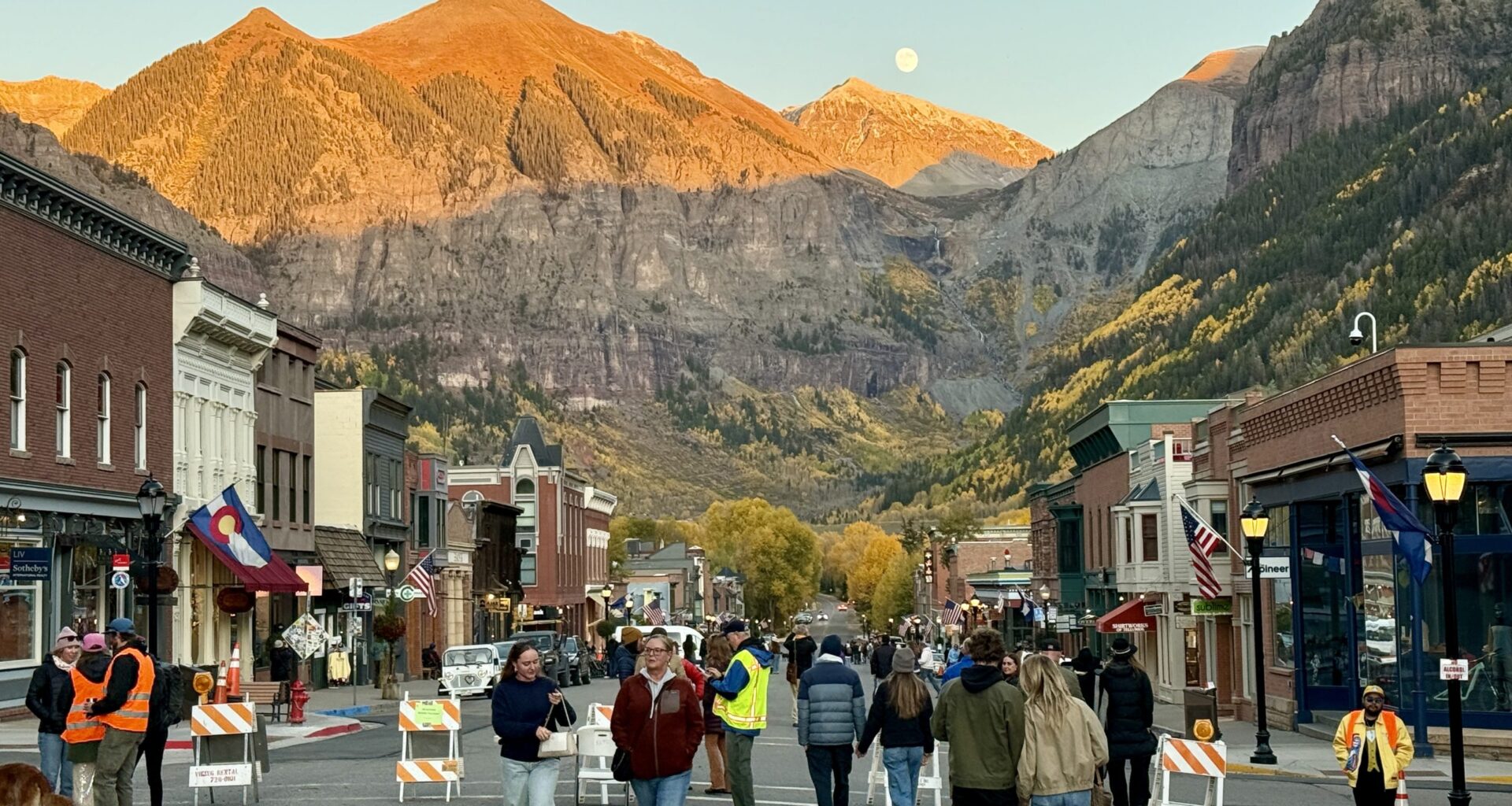TELLURIDE – A New York Times headline from August asked “What does it take to get men to see a doctor?” Penned by a physician, the article explored why men die 5.3 years earlier than women.
“Without meaningful change, the health care system will keep meeting men only after they are already sick — when treatment is harder, outcomes worse and lives are more likely to be cut short,” wrote Dr. Helen Ouyang, whose time in emergency rooms was filled with men who had ignored troubling symptoms, many of them crowing that they had not seen a doctor in years.
“Why do we do that?” asks David Holbrooke, a Telluride filmmaker who convened the first meeting of the Telluride Men’s Health Club last week as the first step in building a regular gathering and online repository for local men to talk about health care and prevent what he calls “preventable deaths.”
There were 40 men at the debut meeting in Telluride. They all knew Peter Hazard and Ross Martin.
Hazard, a hard-charging cyclist and skier who had lived in Telluride for 22 years, was 60 in February when he collapsed on an expert ski run at his home hill and stopped breathing. Martin was 49 — a father of three daughters who just opened a new restaurant with his best friend — when he died in his sleep in March. In 2021, Holbrooke’s friend and renowned art collector Daniel Wolf died after a heart attack at his home in Ridgway.
“These are people I cared about who maybe could still be alive if someone had intervened,” Holbrooke says.
Could visits with a health care provider have helped the beloved local men? Maybe.
“Learning from other people’s mistakes is so profound,” says Emil Sante, who has served as San Miguel County coroner for 15 years and worked 30 years in the canyon as a ski patroller and paramedic. “I am constantly preaching to all our friends, every time there is a suicide or a death, take all that emotion and desire to never have this happen again and go find the next person who you can help.”
That is the goal of the nascent Telluride Men’s Health Club, which is taking shape as a new model for men’s health care in mountain towns, where too often men eschew health care until there’s a problem.
“This about helping men help each other by talking about our health and taking action to ensure we continue to be active and vital,” Holbrooke says.
The filmmaker and founder of the Original Thinkers festival in his hometown of Telluride would have been stoked if a dozen men showed up for his launch of the local men’s health club. There were three times as many men crowded into The Grand, a main street restaurant launched by Martin and his co-chef friend Erich Owen last year.
The proposal is to deliver anecdotal databases on how and where men can get regular tests of their skin, prostrate, colon and heart. Holbrooke calls these “the four horsemen.”
“And the horse is mental health,” he says.
“If you don’t have mental health all this other stuff does not matter,” says Sante, noting San Miguel County’s high rate of suicides. (The county, with a population around 8,000 for the past decade, endured 21 suicides — 19 of them men — between 2015 and 2024, including five in 2016 and six in 2021.)
Colorado has ranked among the top 10 states for suicide for the last decade, with roughly 21 deaths for every 100,000 residents. Suicide is even more common in mountain communities. While the rate of suicide among teens has reached its lowest point in 18 years in Colorado after a multiyear campaign for increased mental health care among youth, the number of older residents ending their lives is growing. Older Colorado residents are now three times more likely to die by suicide as teenagers.
And leading the pack among those older residents are men, who accounted for 77% of all 883 adult suicides in Colorado in 2024.
Part of the high country spike in suicides has to do with aging bodies combined with crowded, pricier and busier communities. These shifts seem to particularly irk men.
“Not only is the community changing but they are changing,” Kady Svitak, a licensed clinical social worker at Vail Health Behavioral Health, told Sun reporter Jen Brown in September. “It’s hard to accept. Who am I now that I am not this amazing skier or mountain biker or hiker?”
Scientists are studying whether altitude can play a role in suicide rates, but there is little concrete evidence connecting the two.
“Everyone wants to find that common thread. But it can be hard in a ski town,” Sante says. “You can only be a ski bum for so long before your health and everything else starts to fade.”
The hope of the Telluride Men’s Health Club is to sprinkle a bit of accountability and peer pressure into health care.
“Who here has some skepticism toward today’s doctors and Western medicine?” Holbrooke asks the group.
Nearly every man raises his hand. They share stories of misdiagnoses and doctors who don’t quite understand mountain lifestyles. They talk about using artificial intelligence and nontraditional care to help bolster their health. But they still need regular colonoscopies, heart scans, skin checks and blood tests for their prostate.
Sante urges the men to know their family history and be well aware of their latest blood test results. Before the next meeting, a few promise to get blood tests.
Maybe this same model can be replicated in other mountain towns, they say.
“I really feel like we’ve taken a major freaking step here today,” Holbrooke says. “I hope this will only grow.”


